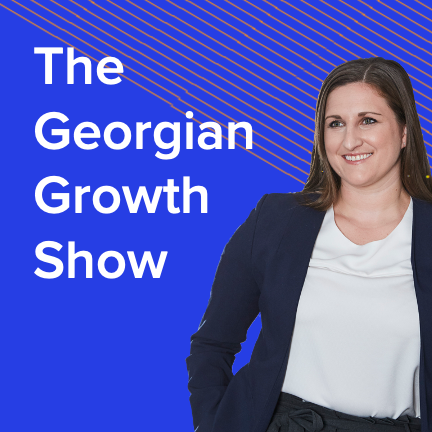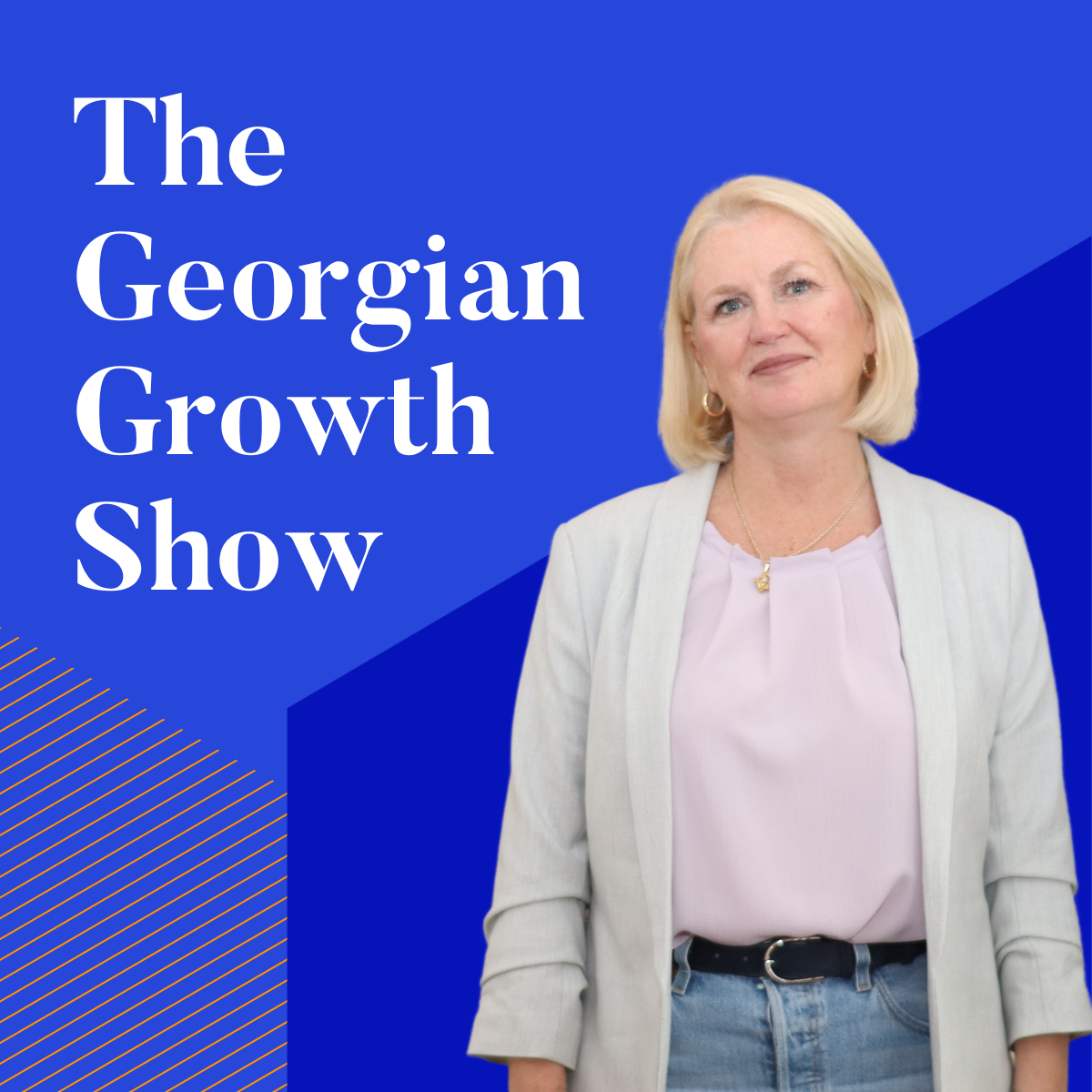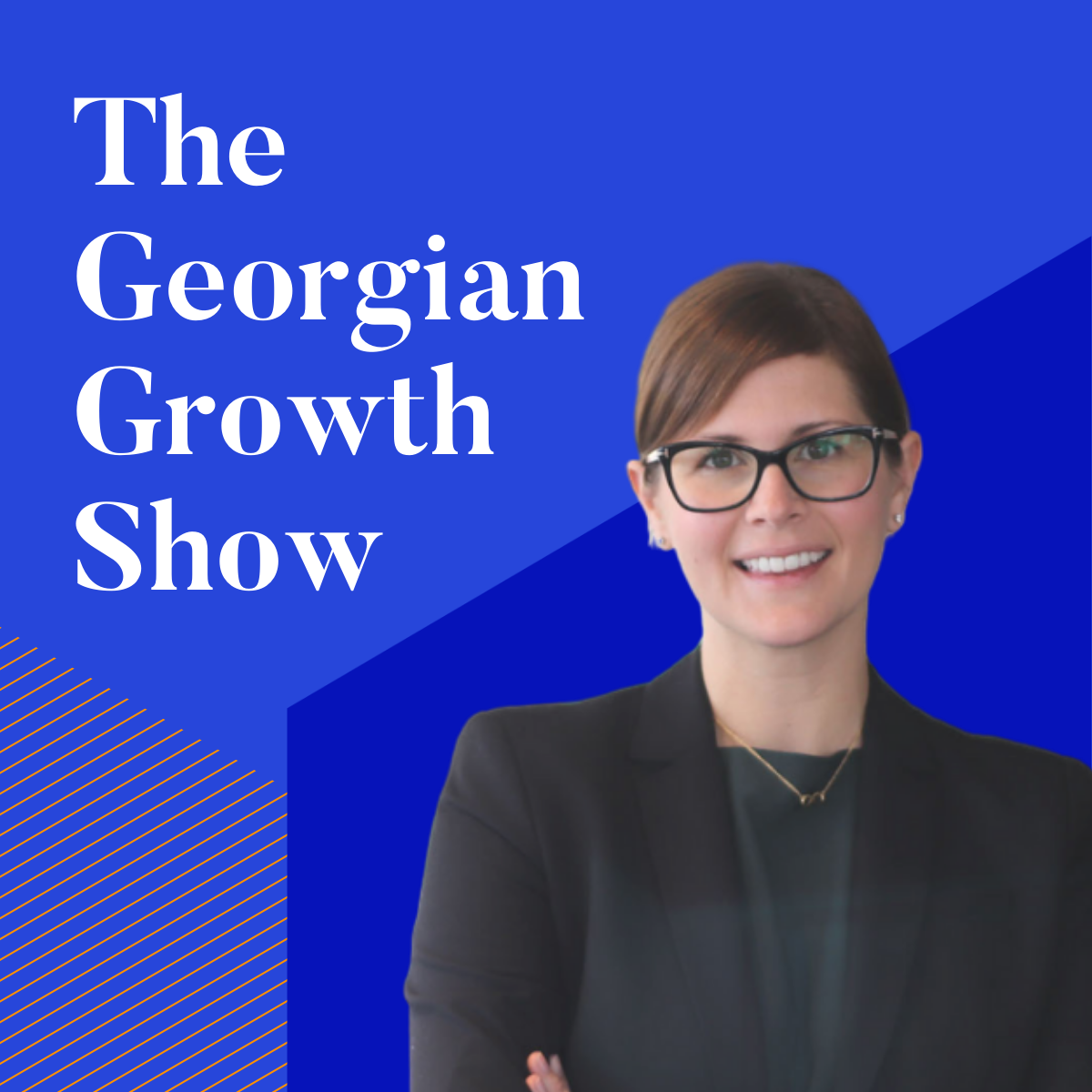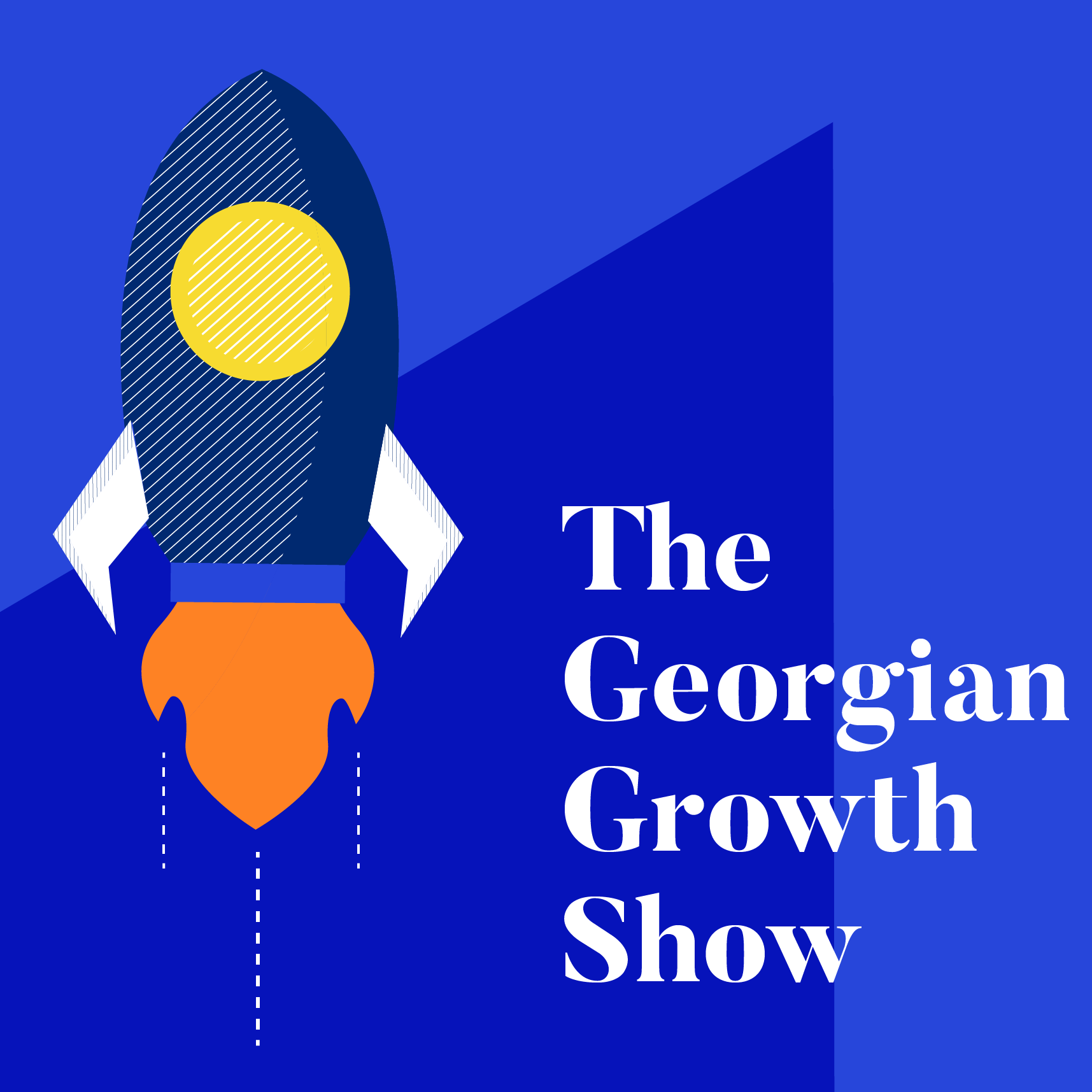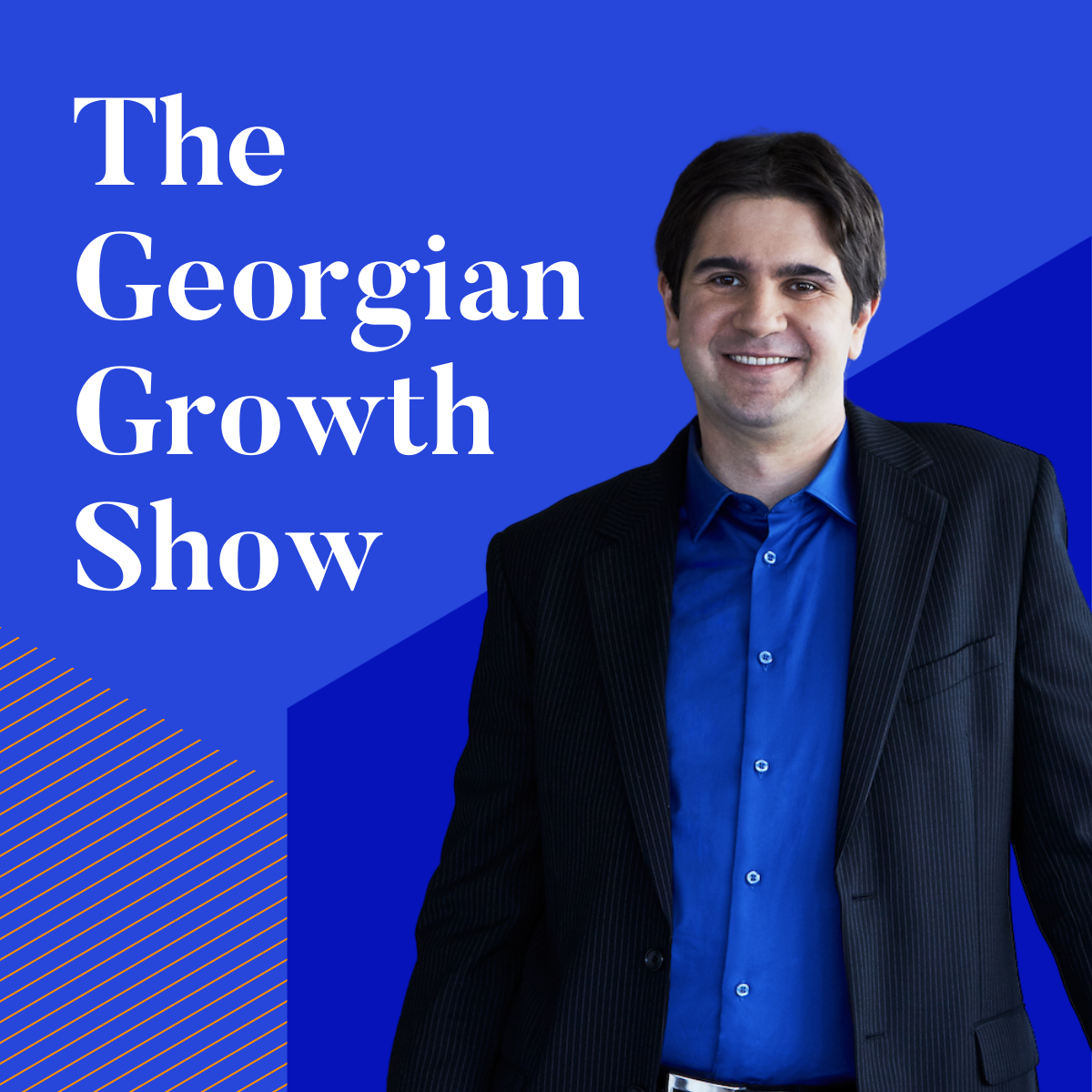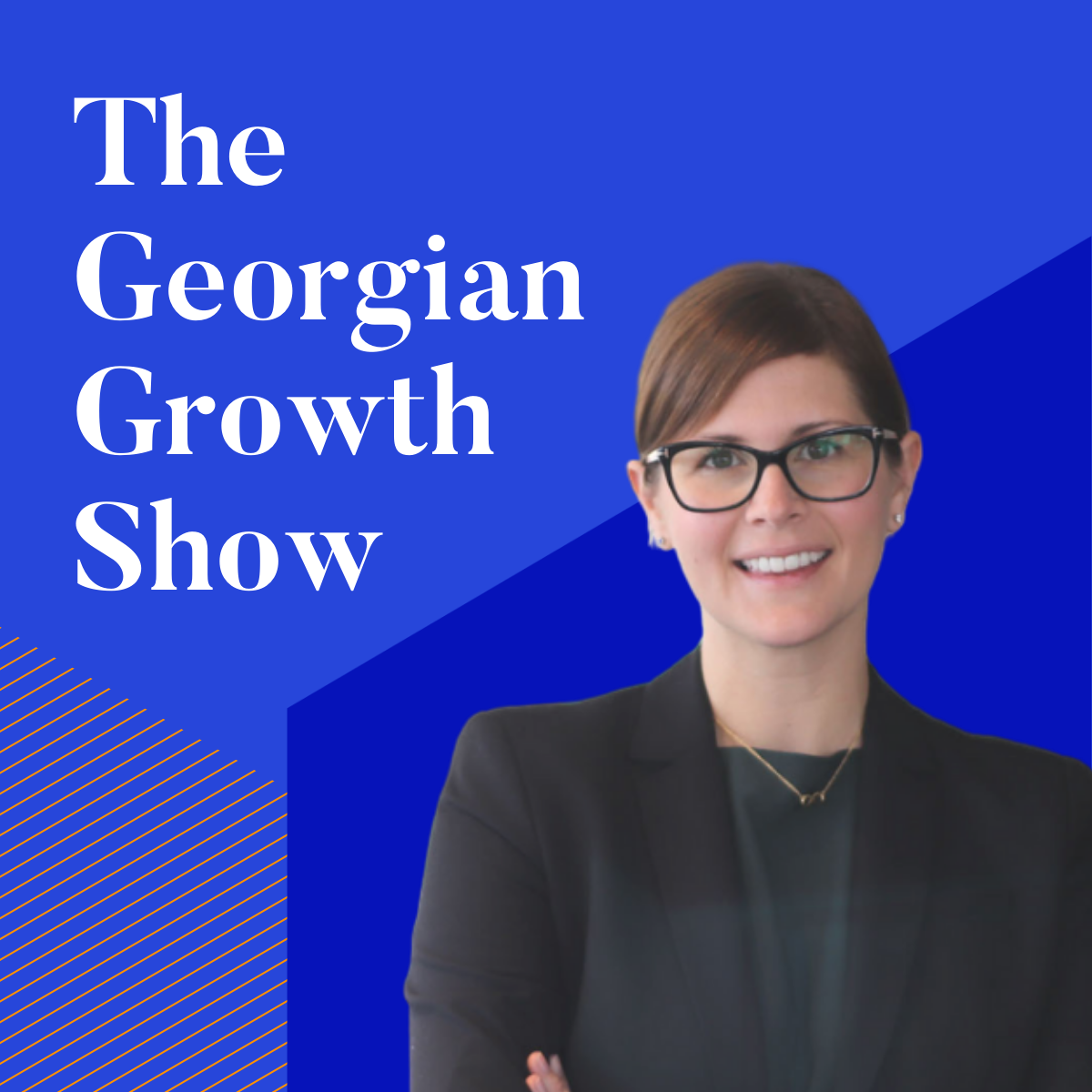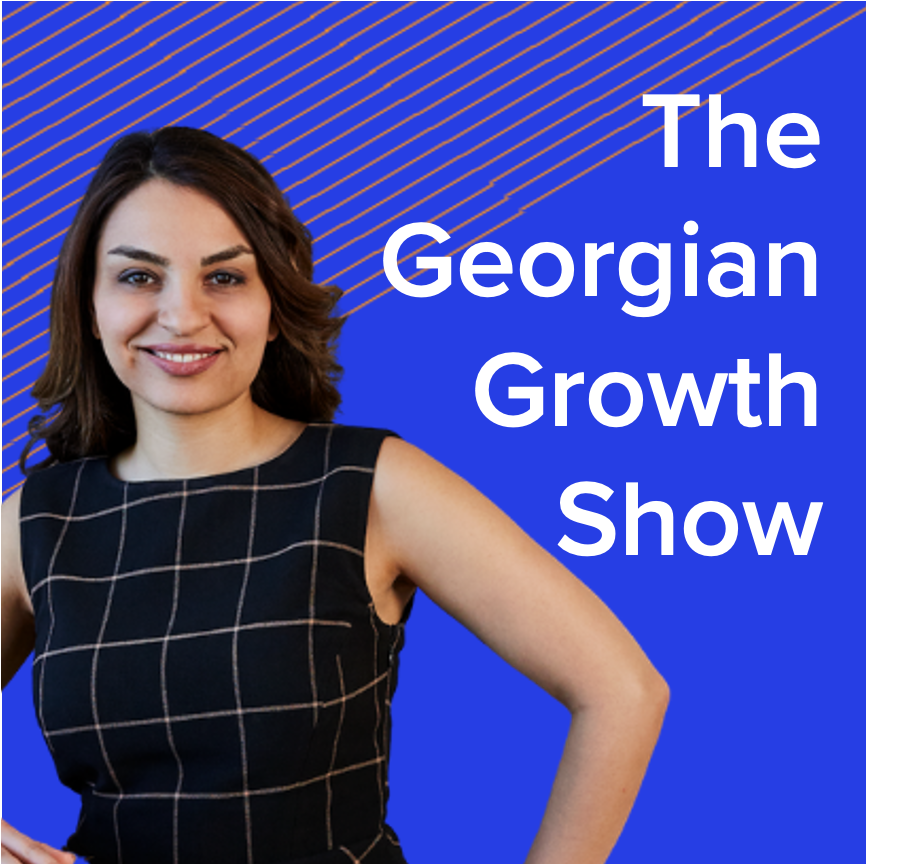Georgian's Kathryn Christie on the Top Three Ingredients for Your Talent Acquisition Strategy
- 0.5
- 1
- 1.25
- 1.5
- 1.75
- 2
Everyone Evan Lewis here back with another GP top three really excited to be joined today by Katherine Christie who is George instead of talent today? We're going to be focusing on the top three ingredients for your talent acquisition strategy to ensure that your culture scales something that is near and dear to every leaders heart. And so without any further Ado, I'm going to kick it over to Catherine to introduce yourself and to tell everyone a little bit more about what she does at Georgia. Thank you very much Evan happy to be happy as always. It's a nice to meet all of you. I am Kathryn as Evan mentioned. I had a the talent function here at Georgian prior to Georgia and I had a bit of an odd package getting to talent but I feel like that's actually has made be better in a lot of different ways, but I actually did my undergrad and operations Supply Chain management math and psychology. So a lot of birth
And things you can tell I was a little undecided but what I wanted to do for my career, but certainly not a whole lot around HR and talents fell into its or through Sports and some things I was doing out of my actual schoolwork and then realize they didn't know a whole lot about it but loved it. So I went and did my masters in organizational behavior fully fell in love with everything that has to do with walk-ins and how they work and how they come to work every day from there. I went into some work and talent acquisition which is near and dear to my heart. I did a lot of high volume recruiting at Coca-Cola and some months higher level reporting there as well. I did some talent management work and then a lot of sort of leadership development work along the way and it was in Consulting prior to coming to George in Consulting. I was doing a lot of talent acquisition work and that's really where I fell in love with who what we're going to talk about today. Perfect Catherine in terms of your role at Georgian. I think the mm
Interesting things that you need to balance are obviously the internal Talent acquisition to build up our team, but then also helping our portfolio companies. So maybe if you just sort of touch on how you think about balancing those two roles and then we'll dig into the top three and what I love about having those two rules is that I really feel like I'm experiencing what our portfolios experiencing along side down as Georgian has gone through a significant amount of growth since I joined over a year and half ago and it's been really wonderful getting to spend the time internally with the team and to Growing culture as we scale and then being able to assist and support and advise all of our portfolio leaders around their strategies and their growth trajectories and how culture fits in that piece, but it's actually I thought it would be a bit more different but it's ended up being a really nice Synergy between both and I feel like I've been able to bring what I learned from a portfolio companies internally and wage.
The other way around you which is a great amazing. So now let's dig into the top three. I think this is particularly interesting, you know, as we all know Talent is the lifeblood of any thoughts any particularly early-stage startups a lot of investors say they invest in the team not necessarily the idea of the product especially in early stages and the audience for this podcast is CEO the executives of growing companies. So one of the most difficult things, you know that we see a lot is maintaining culture and as you're scaling up, you know, you're adding tens twenty, you know, Thirty employees sometimes even a month. So you're adding a tremendous amount of talent and I'd love to talk about your three anchors here for life sure that your talent acquisition strategy scale. So let's start with we're going to go with balance selling and evaluating and we're going to talk about leveraging data, which is really really cool and then calibrating on quality. So let's log
Off but balance selling and evaluating. Absolutely. So this one is really interesting and in the recruiting space, we actually talked a lot about selling and found to get a candidate really engaged and excited about the opportunity. But often it's sort of Falls away as it gets passed off from the recruiter or Source or whoever is doing the first Contact. It loses that sort of piece of the puzzle as we get into interviews and case studies and more structured piece of the puzzle. I actually don't see it as all that different wage to what Georgian does from an investing perspective at every point along the way you want to be evaluating if this is going to work as a partnership just like it would be taking someone to join your team. But you also want to be showing them what that partnership would look like and getting them excited about the opportunity and it's much easier said than done particularly. Well,
Because we are adding tens twenties of people in you know a month which can be a lot of work just on a recruiter and also on the team especially if you don't have a recruiter wage, it's definitely easy for me to say here. You're in say that but doing it is the key piece that I want to touch on and I think about culture overall. It's great to have values written on the wall is great to have mission and vision and all those wonderful things that that show the external world what culture is but day-to-day culture is just the sum total of the people that you have wage and they're motivators and their values and how they make decisions and how they interact with each other the best way to make sure that that's moving in the right direction is to bring people in the door who will do just that back to well aligned with your values and make those decisions and you know make the right trade-offs and be able to sort of evolved the culture in the way that you want it too if you think about taking a nap
For a week or two or doing a few more touch points with a candidate collecting a little more data about them giving them a little more time to spend with the team that will pay off so much. Once they joined the organization as opposed to bringing someone on who might be counterculture might just not be that cultural champion who then can cause a lot of challenges for you once they've already joined the organization. So it's it's an interesting trade-off, but I always like to think about it from a long-term perspective slowing down a little bit and finding that balance between a value waiting and selling so that in the long-term we have that person who really adds to our culture what I find really interesting and I learned a long time ago as a recruiter is that an interview should be a conversation a lot of times. We approached the interview as you know, we have this set of questions. We need to get through we only have this amount of time to do it and then we give the candidate five minutes at the end to ask us they're dead.
Plan questions that they wrote down and showed up with and I don't like that I much prefer giving the candidate a view into what it would be like to work with me and what it would be like to have a conversation with me. I make sure I get what I need from that conversation. And I know one of my favorite interviews I ever did was with you Evan. So I'd love to hear your side. If you had that experience with us at Georgia. We're evolving our recruiting process. Yeah, totally. There's a couple things that come to mind. I think you touched on it briefly. They're one of the quotes that sticks with me to this day is your focus off on hiring for culture add not culture fit and I thought that was just such a clever way to articulate how you think about the culture not just being a static thing but evolved in every new person bringing some sort of new flavor to it. It's Dynamic and it's evolving everyone feels like they can contribute in their own way. So I thought that was really cool. The other thing that yep.
And then did particularly well for me was you knew which little nuggets to drop that would particularly piqued my interest. I will never forget Benz wording around not having this program that I've been building at Jordan being like a startup within the organization and for someone who loves to build as a start-up person that I still cling to that and then I think the other thing too much is knowing that again, I like to create and I like to have freedom. It was very much encouraged that the role I could sort of shape it and come with my ideas thought was very much encouraged. So yeah, I think there was a really nice mix it was almost sneaky that as you guys were selling you were also sort of helping me sell myself. So very interesting sort of balance between the the give-and-take and selling and evaluating. So I thought that was really cool. Let's talk about the data think is the last last conversation we had when we were seeing this up. I thought this was so interesting job.
Something that a lot of companies definitely do not do I know in my past startups collecting data so that your recruiting and your talent acquisition has compounding effects and becomes more impactful and Target it over time I think is so important and love to get your thoughts on that for sure. I love the the point about sort of we dropped the nuggets for you because that's money. So that's what we had collected and a great example is that I asked every candidate the first time I talked to them what they absolutely love about their current job. And then I make sure that that data flows through the process and we repeat back to them what you loved at. Your job is isn't disappearing. It's also important organ and it's actually get Georgian. We need to be honest and tell them that if it is or isn't but those sorts of pieces of the puzzle all that data that you collect along the way just as you would as we would have company or you would a customer and making sure that the value there you're showing them about the rule is exactly what Thursday.
Before or at least has a lot of what they're looking for. And when I think about data, I almost like to think about this as a simple machine learning program. It's you know based in statistics. Am I under grad very fragmented on undergrad but I always like to think about it as a simple regression equation in that every piece of data that we collect through the interview process has a weight loss and often we give more waiting to things that actually aren't as effective at finding high-quality candidates that are going to perform and today and be cultures and all those wonderful things and really being willing to change the weights on that regression equation to get us to the sort of ultimate ability to predict as we can and if we think about all the different ways, we can collect data and interview process. It's a lot more than we think so. There's obviously the subject of data that we can collect by asking them certain questions asking those questions concerns.
Me across different people making sure that we have panels who are seeing all the different angles of what's happening and recording that and that data if we only had one person interviewing with would be truly very subjective. But at least if we could have a few more people look through the same lens, we can start seeing patterns or we can start seeing some things that we want to investigate a little further because this person heard that and that interviewer heard this and there's not a lot of congruence there and then there's the objective side of the sort of equation that's super important when we think about what choice of objective data we can gather with a candidate throughout the process. So things like technical assessments, you know, a studied way back in the eighties that is still holding true was done shows that actually getting the person to do the job is the most predictive piece of them being able to do the job shocker there, but try to make sure that you actually do that. It'd be interesting.
Process and the best way possible, you know, we leverage coding assessments case studies and different things like that. And then the other side of the equation that you really want to make sure you collect is that black cultural values alignments piece of the puzzle and understanding their motivators, you know, one of the biggest predictors of some staying on the organization is actually if they align with the office environments, that's something we don't often talk about in recruiting. We talked about competencies and skills and making sure they can work hard and all that great stuff, but do they like structure do they prefer ambiguity do they like to build do they like to maintain do they like to innovate do they like to turn process into programs? All these different things that we can notify you about our environment? We really need to make sure we see any candidate and and help them understand. So overall the the data picture a dream is that you have thousands of samples of these candidates and all this data usage.
Not the reality in a lot of organizations, but even if you can make a correlation and I apologize to all the researchers out there. It's probably not going to be statistically significant. But if you can see patterns in the data simply down to okay everyone who got less than 80 on a technical assessment is in the middle of a pack from a performance perspective at the end of the year, but maybe there's a certain question that if a candidate failed on that question, they actually left and starting to try and see those patterns and then feeding them back into your process adjusting them through your regression equation to put more emphasis on those pieces can just continuously make you stronger and help you continue to find those candidates that are going to add to your culture and perform at that moment in time as you evolve as an organization awesome so good. I think it seems so simple given a lot of the stuff you talk about
In a driven sales processes and I at least hadn't thought a lot about making those correlations and having a truly data-driven Talent acquisition strategy. So I think that's super super valuable. Now for the final nugget. This will stick with me forever throughout my career the concept of having a very high bar for quality and Jordans girls rule of it's either a hell yes or a no I love for you to talk a little bit about why you feel calibrating on quality is extremely important. Yeah. It's one of my favorite things and I'll tip my hat to Baton for this because he is the best at it but he's the first person that always say we're not giving someone a job just because they made it to the end they have to meet the bar and we need to be comfortable walking away from the entire process if we have to which I have seen him do I think that's it's so important and when I think about calibrating it's really defining what quality looks like dead.
What quality looks like in an ability to interview or having a high-quality resume? It's what does quality actually mean on the job and then let's feed that back into how we're going to evaluate. These candidates score carding is a great way to do it thinking about the things that they need to actually deliver the competencies they need for that now not based on this role or some of the office and sees that Google says are relevant to a role. It's really what are they need to deliver now at the stage our businesses in and what's on the road map and do they have the competencies the values the skills to be able to do that and making sure everybody in the process understands where that bar is.
Using that as the Northstar throughout the process is so so important and what's really cool is that as you start doing it more and more and as you start hiring more and more you can use those scorecards to actually validate if we're looking for the right things and they might evolve they should evolve as your business is growing and realizing that off if you calibrate around a candidate and you could calibrate around a role at that moment in time. You can follow that through and say oh, you know where we right on that. Does that really what they needed to deliver and did we actually find a candidate who can do that? And again that's another feedback loop into the process to make sure we're looking for the right things. But so many times I've seen well, you know, they made it to the end. It was good enough wage. They were better than everybody else in the candidate pool. We need someone in the seat yesterday as always. Let's just see if they can do it very very few times that I've seen that be successful.
I mean there's there's something about taking a chance on people but if you've collected the right data and you've done the work to decide what quality looks like, it's so important to stick to that no matter what age or how tired you are how long it's taken or how many candidates you've seen. It's only going to cause problems in the in the future.
Yeah, I think that's the type of lesson that resonates with pretty much anyone who's listening to this. I know I've made that exact mistake and it's come back to bite me multiple times. So I think this has been super helpful again the top three of balancing selling and evaluating leveraging data throughout your talent acquisition process and calibrating with your team around what quality means K C or the best thing so much for joining and thanks everyone for listening my pleasure. Have a great rest of the day.
DESCRIPTION
In this episode Georgian's head of talent, Kathryn Christie answers these three questions on your talent acquisition strategy:
- How do you balance selling and evaluating?
- How do you leverage data throughout your talent acquisition process?
- How do you calibrate with your team around what quality means?
